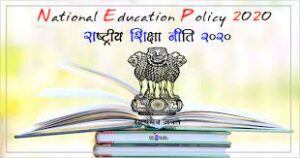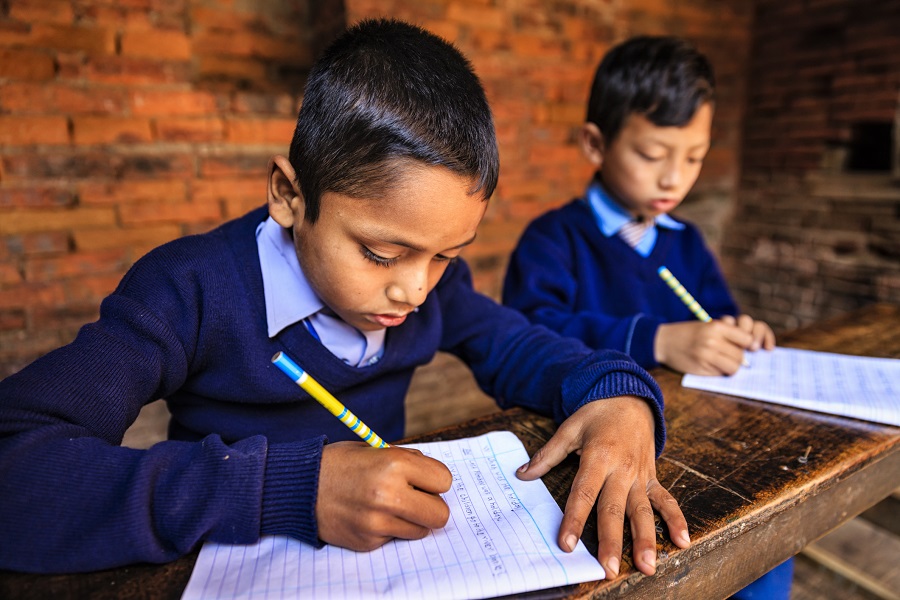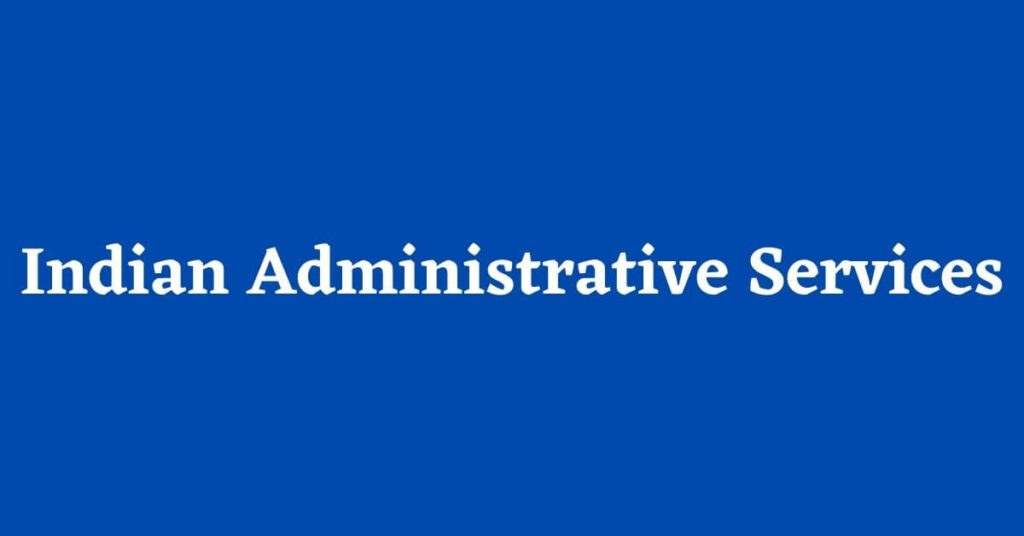The New Education Policy 2020 was announced by the Ministry of Human Resource Development, Government of India. This is the new era of the education system after several decades. This new education policy (NEP) has replaced the 34 years old of the National Policy of Education (NPE) of 1986.
This New Education Policy 2020 is a fallout of the Draft New Education Policy presented by a committee headed by Krishnaswamy Kasturirangan, former Chairman ISRO.
The policy is an exhaustive and comprehensive framework for elementary education to higher education. This also focuses on vocational training in both the rural and urban parts of the country. The sole aim of the new policy is to transform India’s Education System by 2040.
Table of Contents
The vision of the National Education Policy
National Education Policy 2020 envisions an India-centric education system that contributes directly to transforming our nation sustainably into an equitable and vibrant knowledge society by providing high-quality education to all.
Provision of the National Education Policy
The NEP 2020 enacts numerous changes in India’s education policy. It aims to increase state expenditure on education from around 4% to 6% of the GDP.
Key Focuses Changes and Objectives
1.Languages
The NEP 2020 laid the importance on mother tongue and regional languages to be the instruction of medium until class 5.
Sanskrit and Foreign languages will also be given emphasis.
No languages will be imposed on the students
2.New Pedagogy and Curriculum Framework
2.A: School Education
Foundation Stage:
This is divided into two stages- 3 years of preschool or Anganwadis, followed by classes 1 and 2 in primary school. It will be for 5 years for the age groups of 3-8 years.
The focus of the studies will be activity-based learning.
Preparatory Stage:
This will cover Classes 3 to 5, which will cover the age group of 8-11 years. At this level, there will be a gradual introduction of the subjects like speaking, reading, writing, physical education, Language, arts, science, and mathematics.
Middle Stage:
This will cover Classes 6 to 8, which will cover the age group of 11-14 years.
This level will introduce more abstract concepts in subjects like science, social sciences, arts, and humanities.
Secondary Stage:
This will cover Classes 9 to 12, which will cover the age group of 14-19 years. It is subdivided into two parts.
Class 9 and 10 in the first phase and classes 11 and 12 in the second phase. During these 4 years of study, multidisciplinary study along with deep and critical thinking will be inculcated.
Multiple options of subjects will be available for selection
2.B: Higher Education
NEP 2020, introduced a 4-year multidisciplinary undergraduate programme with multiple exit options. This will include professional and vocational areas and will be implemented as follows
- A completion certificate after 1 year of study
- A Diploma after completion of 2 years of study
- A Bachelor’s degree after completion of 3 years of study
- A 4 Year multidisciplinary bachelor’s degree.
M.Phil. (Master of Philosophy) courses will be discontinued.
A Higher Education Council of India (HECI) will be set to regulate higher education. HECI will have four verticals:
- National Higher Education Regulatory Council (NHERC), excluding the medical and legal education- Regulation of higher education including the teacher’s education.
- General Education Council (GEC)- focuses on Standard-Setting-
- Higher Education Grants Council (HEGC)- for Funding and financing of Universities and Colleges.
- National Accreditation Council (NAC)- for Accreditation.
Other professional councils such as Veterinary Council of India, Council of Architecture, Indian Council of Agricultural Research, and National Council for Vocational Education and Training.
The National Testing Agency (NTA) will now be conducting all the entrance examination across the country in addition to the JEE and NEET
The policy also emphasizes internationalize education in India.
Foreign Universities can now set up their campuses in India.
The fees for both the private and public universities will be fixed.
2.C: Teacher Education
To be eligible for becoming a teacher, one would have a 4-Year Bachelor of Education with the minimum requirement needed by 2030.
The National Council for Teacher Education (NCTE) will frame a National Curriculum Framework for Teachers Education by 2021 and a National Professional Standards for Teachers by 2022.
SOME IMPORTANT FACTS TO BE NOTED :
- The national education Commission will be headed by the Prime Minister of India.
- Academic Bank of Credit is a digital storage of credits earned to help the students to resume education by using credits for further education.
- National Research and Foundation to focus on improvement of research and innovation.
- Special Education Zone, to focus on the education of the underrepresented groups in a disadvantaged region.
- Gender Inclusion Fund for assisting the nation in the education of female and transgender children.
National Education Technology Forum, a platform to facilitate the exchange of ideas on the technology used to improve learning.

Comparison between National Education Policy (NEP), 2020
VS
National Policy on Education (NPE), 1986
| NEW EDUCATION POLICY 2020 | NATIONAL POLICY ON EDUCATION 1986 |
| Ministry of Education | Ministry of Human Resource Development |
| Gross Enrollment ratio -50% (2035) | Gross Enrollment ratio -26.3% (2018) |
| Format is 5+3+3+4 | Format is 10+2 |
| Age bracket
Age 3-8 years Age 8-11 years Age 11-14 years Age 14-18 years |
Age bracket
Age 6-16 years Age 16-18 years
|
| Exam to be conducted
Class 3, 5, 8, 10 ,12 |
Exam conducted every year till Class 12 |
| Board Exam- Twice a year and the format would be objective and descriptive | Board Exam- Once a year and the format was descriptive |
| The stream can be selected on the basis of the interest and desire | Only three streams for selection-Arts. Science & Commerce |
| One mandatory vocational subject at class 6-8 | Not mandatory |
| Health card and checkup will be done | Health card and supplements program is already running |
| Three languages by State, Region, and choice of the students | Three languages -Hindi, English, and the regional language |
| Preparatory class Balvatika for children below the age of 5 – Only ECCE qualified teacher | Not applicable |
| Report cards to be evaluated by the teachers, peers, and students. | Report card to be evaluated by the teachers. |
| 360-degree holistic report card for the students including the skills. | |
| Coding to be taught from class 6 onwards | No such options available |
| E-Content in 8 languages | Lack of regional languages E-Content |
| Multiple entries and exit options for incomplete courses. The credit will be transferred through the Academic Bank of Credits | No such options available |
| Free boarding schools like JNV for poor students | |
| National Scholarship Portal for SC, ST, OBC, and SEDG. | National Scholarship Portal for SC, ST, OBC, and SEDG. |
| Minimum qualification for teaching- 4 years integrated B.Ed. degree. | No such options available |
| IITs will include multidisciplinary streams like Arts, Humanities, etc. | No such options available |
| Four options for higher studies
1 Year -Diploma 2 Year- Advanced Diploma 3 Year- Graduation 4 Year -Graduation with research |
Four options for higher studies
1 Year -Diploma 2 Year- Advanced Diploma 3 Year- Graduation 4 Year -Graduation with research |
| After graduation, a Master’s degree with 1 or 2 years of research options are available | After graduation, a Master’s degree with 1 or 2 years of research options are available |
| M. Phil is discontinued. A doctorate can be pursued after Masters | First M. Phil then Doctorate can be pursued. |
| Controlling authority: Divided into 4 parts
5. Regulation- National Higher Education Regulatory Council (NHERC) 6. Standard-Setting- General Education Council (GEC) 7. Funding- Higher Education Grants Council (HEGC) 8. Accreditation- National Accreditation Council (NAC) |
Controlling Authority: Some are below
1. UGC 2. AICTE(Technical) 3. ICAR (Agriculture) 4. BCI (Legal) 5. CCIM (Medical) 6. ICAI 7. CBSE 8. NCERT etc. |
| New academic session to begin in September-October 2020 |
Glossary
| Acronym | Definition |
| ABC | Academic Bank of Credit |
| AI | Artificial Intelligence |
| AC | Autonomous degree-granting College |
| AEC | Adult Education Centre |
| API | Application Programming Interface |
| AYUSH | Ayurveda, Yoga and Naturopathy, Unani, Siddha, and Homeopathy |
| B.Ed. | Bachelor of Education |
| BEO | Block Education Officer |
| BITE | Block Institute of Teacher Education |
| BoA | Board of Assessment |
| BoG | Board of Governors |
| B.Voc | Bachelor of Vocational Education |
| CABE | Central Advisory Board of Education |
| CBCS | Choice Based Credit System |
| CBSE | Central Board of Secondary Education |
| CIET | Central Institute of Educational Technology |
| CMP | Career Management and Progression |
| CoA | Council of Architecture |
| CPD | Continuous Professional Development |
| CRC | Cluster Resource Centre |
| CWSN | Children With Special Needs |
| DEO | District Education Officer |
| DIET | District Institute of Education and Training |
| DIKSHA | Digital Infrastructure for Knowledge Sharing |
| DSE | Directorate of School Education |
| DST | Department of Science and Technology |
| ECCE | Early Childhood Care and Education |
| EEC | Eminent Expert Committee |
| GCED | Global Citizenship Education |
| GDP | Gross Domestic Product |
| GEC | General Education Council |
| GER | Gross Enrolment Ratio |
| GFR | General Financial Rule |
| HECI | Higher Education Commission of India |
| HEGC | Higher Education Grants Council |
| HEI | Higher Education Institutions |
| ICAR | Indian Council of Agricultural Research |
| ICHR | Indian Council of Historical Research |
| ICMR | Indian Council of Medical Research |
| IGNOU | Indira Gandhi National Open University |
| IIM | Indian Institute of Management |
| IIT | Indian Institute of Technology |
| IITI | Indian Institute of Translation and Interpretation |
| ISL | Indian Sign Language |
| ITI | Industrial Training Institute |
| M.Ed. | Master of Education |
| MBBS | Bachelor of Medicine and Bachelor of Surgery |
| MERU | Multidisciplinary Education and Research Universities |
| MHFW | Ministry of Health and Family Welfare |
| MoE | Ministry of Education |
| MOOC | Massive Open Online Course |
| MWCD | Ministry of Women and Child Development |
| NAC | National Accreditation Council |
| NAS | National Achievement Survey |
| NCC | National Cadet Corps |
| NCERT | National Council of Educational Research and Training |
| NCF | National Curriculum Framework |
| NCFSE | National Curriculum Framework for School Education |
| NCFTE | National Curriculum Framework for Teacher Education |
| NCIVE | National Committee for the Integration of Vocational Education |
| NCPFECCE | National Curricular and Pedagogical Framework for Early Childhood Care and Education |
| NCTE | National Council for Teacher Education |
| NCVET | National Council for Vocational Education and Training |
| NETF | National Educational Technology Forum |
| NGO | Non-Governmental Organization |
| NHEQF | National Higher Education Qualifications Framework |
| NHERC | National Higher Education Regulatory Council |
| NIOS | National Institute of Open Schooling |
| NIT | National Institute of Technology |
| NITI | National Institution for Transforming India |
| NPE | National Policy on Education |
| NPST | National Professional Standards for Teachers |
| NRF | National Research Foundation |
| NSQF | National Skills Qualifications Framework |
| NSSO | National Sample Survey Office |
| NTA | National Testing Agency |
| ODL | Open and Distance Learning |
| PARAKH | Performance Assessment, Review, and Analysis of Knowledge for Holistic development |
| PCI | Pharmacy Council of India |
| PhD | Doctor of Philosophy |
| PTR | Pupil-Teacher Ratio |
| RCI | Rehabilitation Council of India |
| RPWD | Rights of Persons with Disabilities |
| SAS | State Achievement Survey |
| SCDP | School Complex/Cluster Development Plans |
| SCERT | State Council of Educational Research and Training |
| SCF | State Curricular Framework |
| SCMC | School Complex Management Committee |
| SDG | Sustainable Development Goal |
| SDP | School Development Plan |
| SEDG | Socio-Economically Disadvantaged Group |
| SEZ | Special Education Zone |
| SIOS | State Institutes of Open Schooling |
| SMC | School Management Committee |
| SQAAF | School Quality Assessment and Accreditation Framework |
| SSA | Sarva Shiksha Abhiyan |
| SSS | Simple Standard Sanskrit |
| SSSA | State School Standards Authority |
| STEM | Science, Technology, Engineering, and Mathematics |
| STS | Sanskrit Through Sanskrit |
| SWAYAM | Study Webs of Active Learning for Young Aspiring Minds |
| TEI | Teacher Education Institution |
| TET | Teacher Eligibility Test |
| U-DISE | Unified District Information System for Education |
| UGC | University Grants Commission |
| VCI | Veterinary Council of India |
Abbreviations
ABC Academic Bank of Credit
AI Artificial Intelligence
AC Autonomous degree-granting College
AEC Adult Education Centre
API Application Programming Interface
AYUSH Ayurveda, Yoga, and Naturopathy, Unani, Siddha, and Homeopathy
B.Ed. Bachelor of Education
BEO Block Education Officer
BITE Block Institute of Teacher Education
BoA Board of Assessment
BoG Board of Governors
BRC Block Resource Centre
B.Voc Bachelor of Vocational Education
CABE Central Advisory Board of Education
CBCS Choice Based Credit System
CBSE Central Board of Secondary Education
CIET Central Institute of Educational Technology
CMP Career Management and Progression
CoA Council of Architecture
CPD Continuous Professional Development
CRC Cluster Resource Centre
CWSN Children With Special Needs
DAE Department of Atomic Energy
DBT Department of Biotechnology
DEO District Education Officer
DIET District Institute of Education and Training
DIKSHA Digital Infrastructure for Knowledge Sharing
DSE Directorate of School Education
DST Department of Science and Technology
ECCE Early Childhood Care and Education
EEC Eminent Expert Committee
GCED Global Citizenship Education
GDP Gross Domestic Product
GEC General Education Council
GER Gross Enrolment Ratio
GFR General Financial Rule
HECI Higher Education Commission of India
HEGC Higher Education Grants Council
HEI Higher Education Institutions
ICAR Indian Council of Agricultural Research
ICHR Indian Council of Historical Research
ICMR Indian Council of Medical Research
ICT Information and Communication Technology
IDP Institutional Development Plan
IGNOU Indira Gandhi National Open University
IIM Indian Institute of Management
IIT Indian Institute of Technology
IITI Indian Institute of Translation and Interpretation
ISL Indian Sign Language
ITI Industrial Training Institute
M.Ed. Master of Education
MBBS Bachelor of Medicine and Bachelor of Surgery
MERU Multidisciplinary Education and Research Universities
MHFW Ministry of Health and Family Welfare
MHRD Ministry of Human Resource Development
MoE Ministry of Education
MOOC Massive Open Online Course
MoU Memorandum of Understanding
- Phil Master of Philosophy
MWCD Ministry of Women and Child Development
NAC National Accreditation Council
NAS National Achievement Survey
NCC National Cadet Corps
NCERT National Council of Educational Research and Training
NCF National Curriculum Framework
NCFSE National Curriculum Framework for School Education
NCFTE National Curriculum Framework for Teacher Education
NCIVE National Committee for the Integration of Vocational Education
NCPFECCE National Curricular and Pedagogical Framework for Early Childhood Care and Education
NCTE National Council for Teacher Education
NCVET National Council for Vocational Education and Training
NETF National Educational Technology Forum
NGO Non-Governmental Organization
NHEQF National Higher Education Qualifications Framework
NHERC National Higher Education Regulatory Council
NIOS National Institute of Open Schooling
NIT National Institute of Technology
NITI National Institution for Transforming India
NPE National Policy on Education
NPST National Professional Standards for Teachers
NRF National Research Foundation
NSQF National Skills Qualifications Framework
NSSO National Sample Survey Office
NTA National Testing Agency
OBC Other Backward Classes
ODL Open and Distance Learning
PARAKH Performance Assessment, Review and Analysis of Knowledge for Holistic development
PCI Pharmacy Council of India
PFMS Public Financial Management System
Ph. D Doctor of Philosophy
PSSB Professional Standard Setting Body
PTR Pupil Teacher Ratio
R&I Research and Innovation
RCI Rehabilitation Council of India
RPWD Rights of Persons with Disabilities
SAS State Achievement Survey
SC Scheduled Caste(s)
SCDP School Complex/Cluster Development Plans
SCERT State Council of Educational Research and Training
SCF State Curricular Framework
SCMC School Complex Management Committee
SDG Sustainable Development Goal
SDP School Development Plan
SEDG Socio-Economically Disadvantaged Group
SEZ Special Education Zone
SIOS State Institutes of Open Schooling
SMC School Management Committee
SQAAF School Quality Assessment and Accreditation Framework
SSA Sarva Shiksha Abhiyan
SSS Simple Standard Sanskrit
SSSA State School Standards Authority
ST Scheduled Tribe(s)
STEM Science, Technology, Engineering, and Mathematics
STS Sanskrit Through Sanskrit
SWAYAM Study Webs of Active Learning for Young Aspiring Minds
TEI Teacher Education Institution
TET Teacher Eligibility Test
U-DISE Unified District Information System for Education
UGC University Grants Commission
UNESCO United Nations Educational, Scientific and Cultural Organization
UT Union Territory
VCI Veterinary Council of India
Career Planning plays an important role in shaping your career, so is the planning to choose the best suitable option for yourself. You need to focus on various aspects before jumping into a final decision.
Career path analysis helps you in getting the best road map. Get your career assessment test by appearing for the free student profiling process. https://eduxact.edumilestones.com/

Click the link below and get an exhaustive career report and book for a free counseling session. For Studying abroad in 15000+ across 20+ Countries visit the mentioned link.
Click: Start Study Abroad Profiling to get access to 15000+ Universities across 20+ Countries
Please share your valuable inputs regarding the article. Also, help me develop other information guides by giving your suggestions.
You can comment in the section below for sharing your thoughts.





Much awaited Change.
Good and correct information.